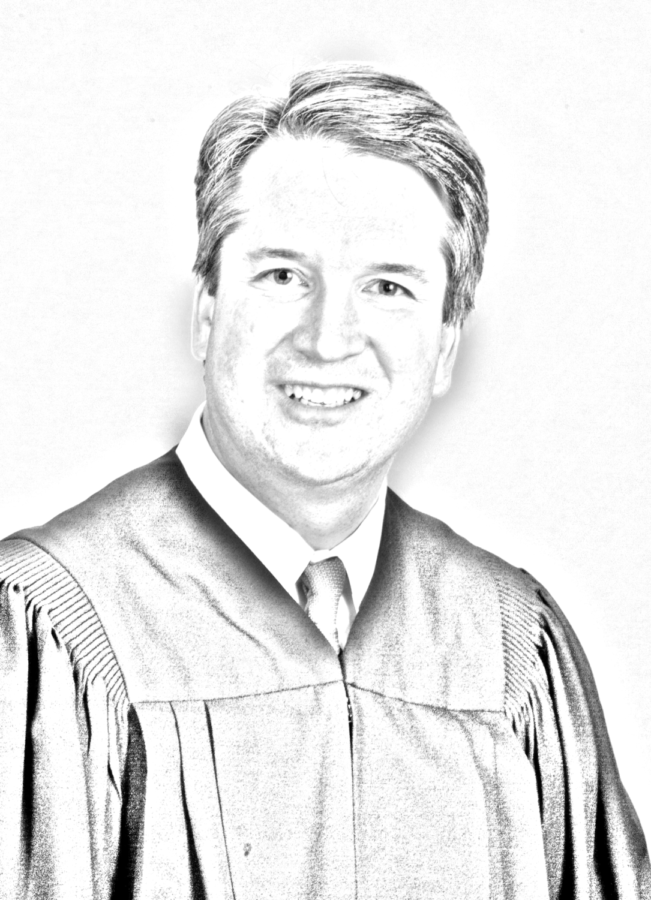Why the Long Term Effects of Kavanaugh’s Confirmation are Catastrophic
Brett Kavanaugh, the newest member of the Supreme Court, was voted in by a 50-48 decision.
By a vote of 50-48, Brett Kavanaugh was confirmed as the newest Supreme Court Justice, replacing former justice Anthony Kennedy on Oct. 6th.
The controversial nomination, which has been surrounded by multiple protests and allegations, poses many problems.
While there is an argument to be made that Kavanaugh is being unrealistically attacked simply due to his political ideology and connection to the President, it is crucial to realize that his selection sets a dangerous precedent for the selection of top-tier government officials.
Both President Trump and Kavanaugh have been allowed to reach the highest position in their respective branches of government, all while having multiple allegations of sexual harassment. Allowing misogynistic figures to pursue their political goals embeds a sense of immorality in privileged males across the country and speaks volumes about the true equity of America’s government.
Appointing a man with a slew of harassment and misconduct allegations to the highest judiciary seat in the United States Government is not only illogical but highly unethical of a committee of nearly 100 highly educated senators. Kavanaugh’s success in being appointed will only be the tip of the Washington iceberg, because the norm of selecting our nation’s leaders has shifted from selecting vetted, impartial people, to unstable and irresponsible individuals.
In addition to his poor ethical standards, Kavanaugh has also been given the power to uproot longstanding Supreme Court decisions by creating a 5-4 conservative ruling.
“We might be heading into the most conservative era since at least 1937,” Washington University law professor Lee Epstein said in an interview with the New York Times.
Kavanaugh’s addition may lead to the overturning of Roe v. Wade, the 1973 ruling that legalized abortion. It may come into effect as many cases are advancing through the lower courts in hopes of reaching the Supreme Court.
Overturning laws that protect basic rights such as abortion will cause a loud public response in which many Americans will speak out against the government for taking away their right to choose, causing many, especially liberals, to resent their own country’s leaders.
According to the Planned Parenthood, a 2017 survey showed that 72 percent of Americans do not want to see Roe v. Wade overturned, so if overturned, they will question if the Supreme Court is representing Americans’ rights. As Kavanaugh will potentially be the deciding vote, Americans will criticize the Supreme Court as a whole, questioning the ethics of the judges.
Also, less restrictive gun laws will surely cause protests by liberal Americans nationwide. With gun violence increasing in our country, Americans will feel unsafe knowing laws will be less restrictive.
If Kavanaugh manages to overturn the Roe v. Wade decision and implement fewer gun restrictions, conservatives will be ecstatic. What President Trump’s Supreme Court nominee accomplishes reflects on his presidency, and if the right benefits because of how Kavanaugh affects the court, Trump will gain more support, which will ultimately lead to his reelection in 2020.
Your donation will support the student journalists of Portola High School. Your contribution will allow us to purchase equipment and cover our annual website hosting costs.

Ajinkya Rane is one of the two Managing Editors, and it is his second year in that role. He has previously served as Co Editor-in-Chief and Sports Editor,...

Aneska Smith is the 2018-19 Photo Editor for the Portola Pilot. She is excited to bring her love for photography to the newspaper! In her free time, she...




